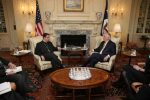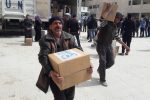NEWSLETTER Week of March 30th 2017
|
|
Related Articles
NEWSLETTER january 11th 2018
NEWSLETTER Week of january 11th 2018 Subscribe | Visit our website FOCUS ON 2018 New
NEWSLETTER Week of June 20th 2017
View in your browser NEWSLETTER Week of June 20th 2017 Subscribe |
Newsletter 07/03/19
Click on the image to read the newsletter















